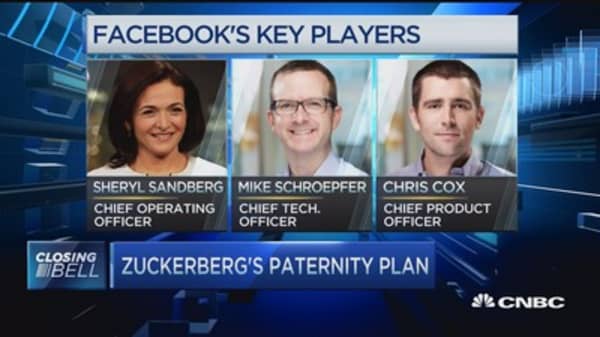The boss taking a leave sends an important message to employees that the company policy is authentic. If the boss is able to be out for a period of time and have his or her work covered, then so can other staff. Zuckerberg's actions imply that Facebook knows the importance of standing behind its family-friendly workplace policies by having a strong leadership team cross-training and a collaborative work style that allows other employees to take on more responsibilities while company leadership is out on leave.
We can't forget to list Mark Zuckerberg among those who will benefit from his leave. He'll experience more of the joys of parenting. And he'll also be a better leader by empowering his employees. Susan Wojcicki, the CEO of YouTube, pointed this out in an op-ed in the Wall Street Journal. As a mother who took maternity leave five times, she said, being a mother "gave me a broader sense of purpose, more compassion, and a better ability to prioritize and get things done efficiently. It also helped me understand the specific needs and concerns of mothers, who make most household spending decisions and control more than $2 trillion of purchasing power in the U.S."






